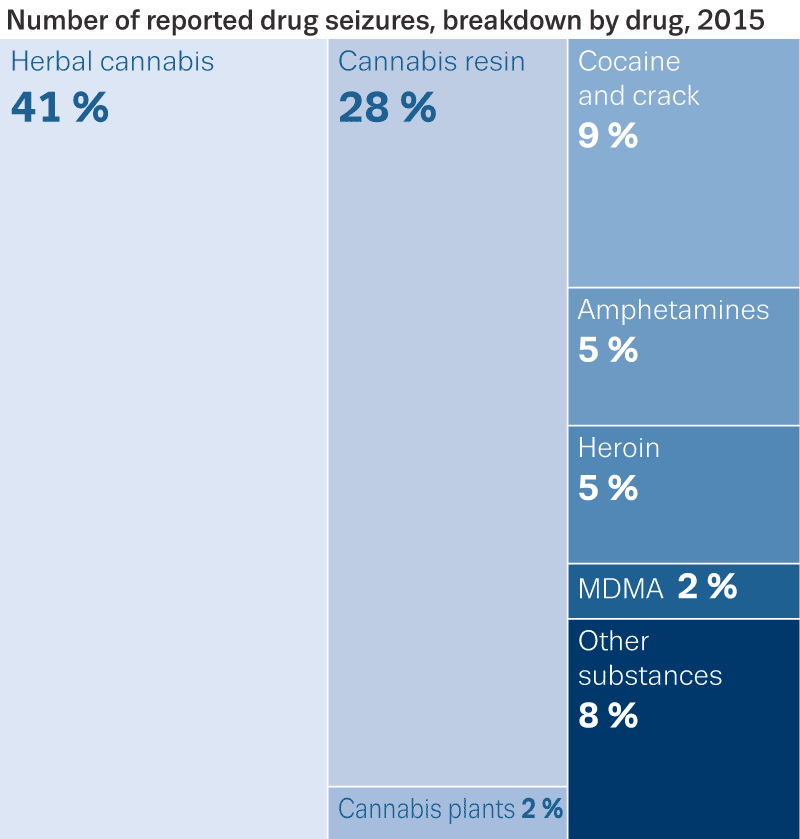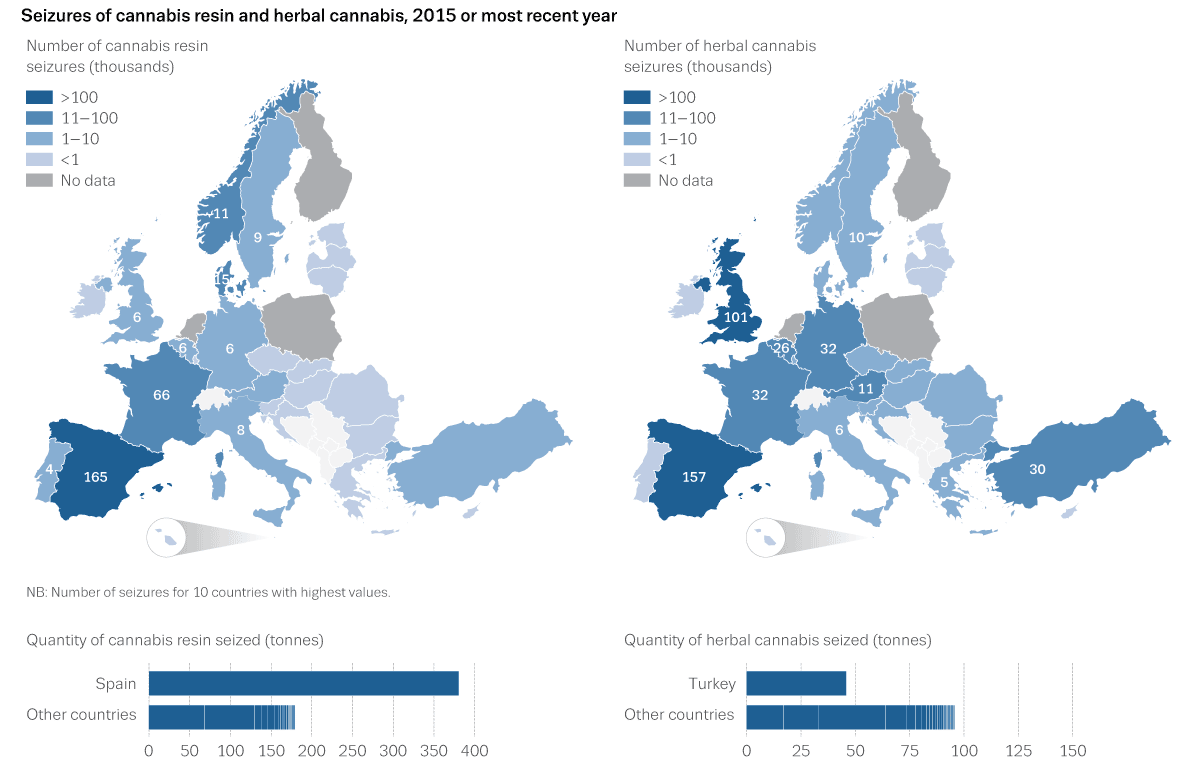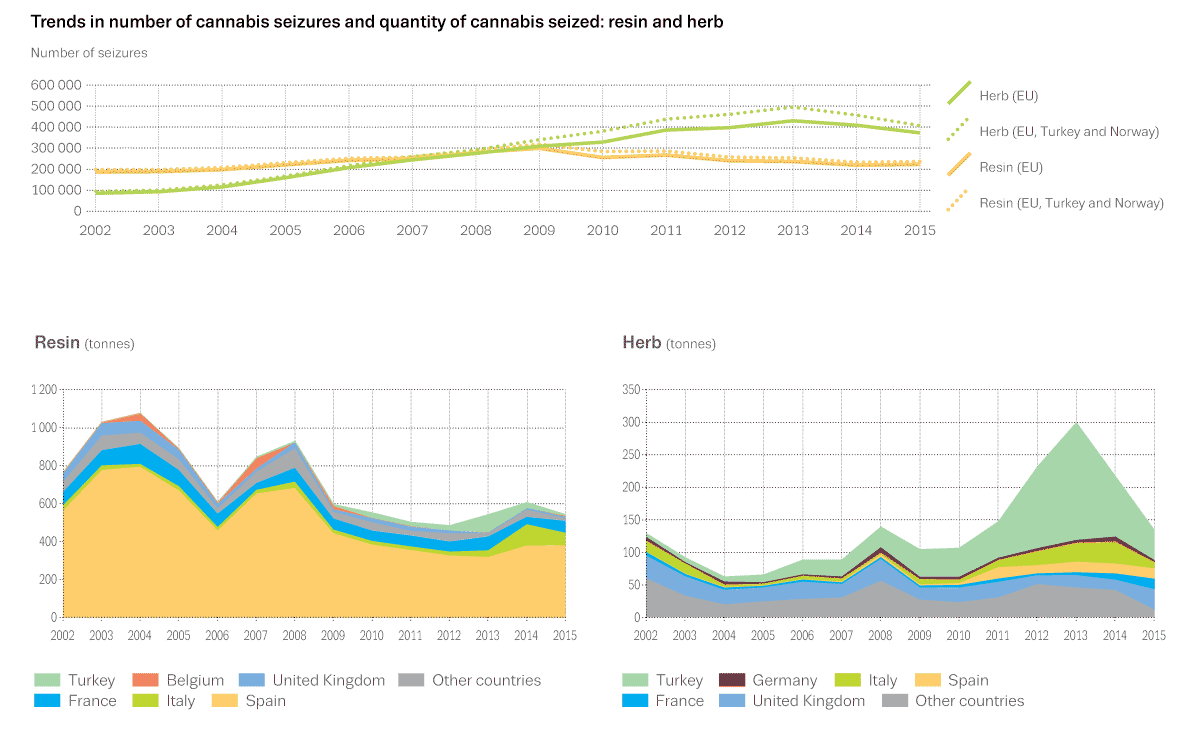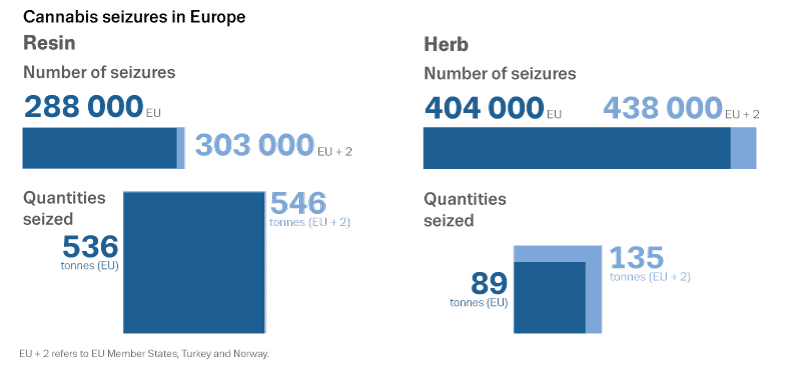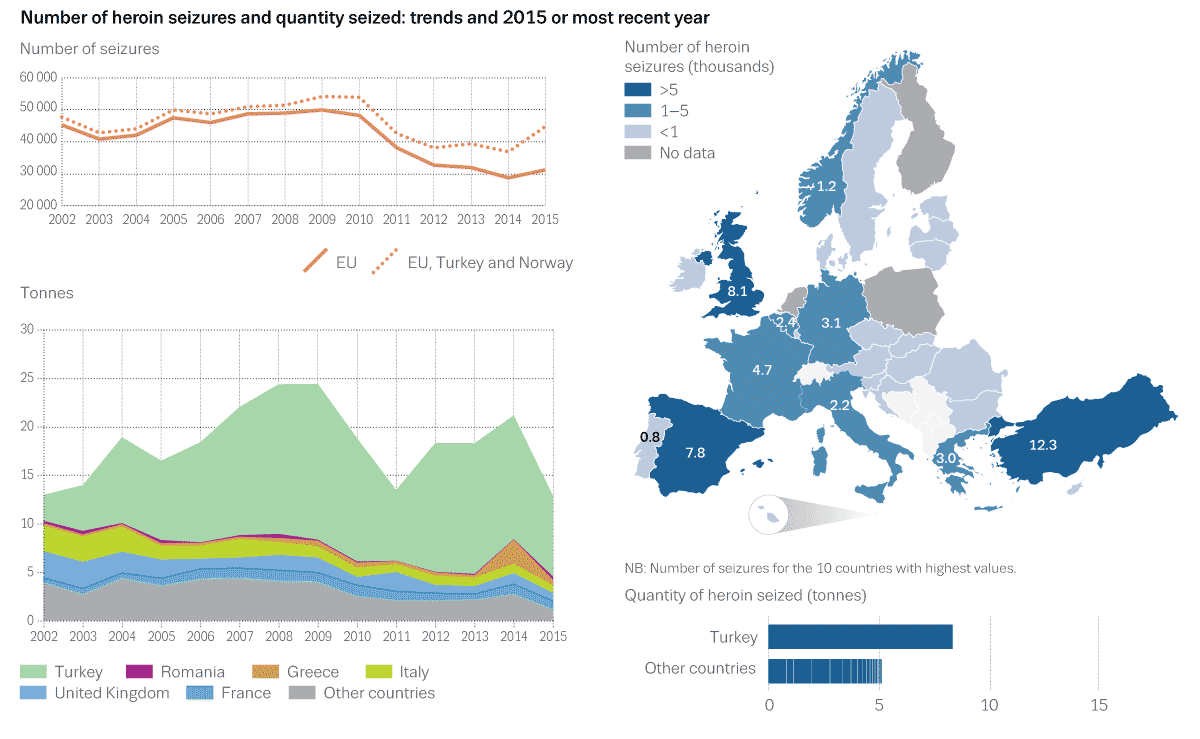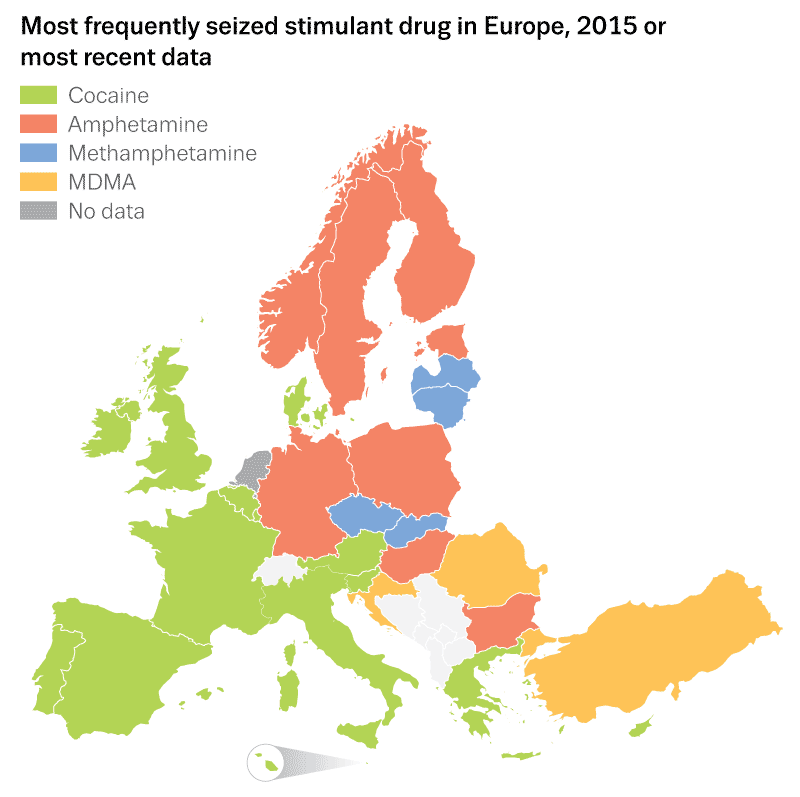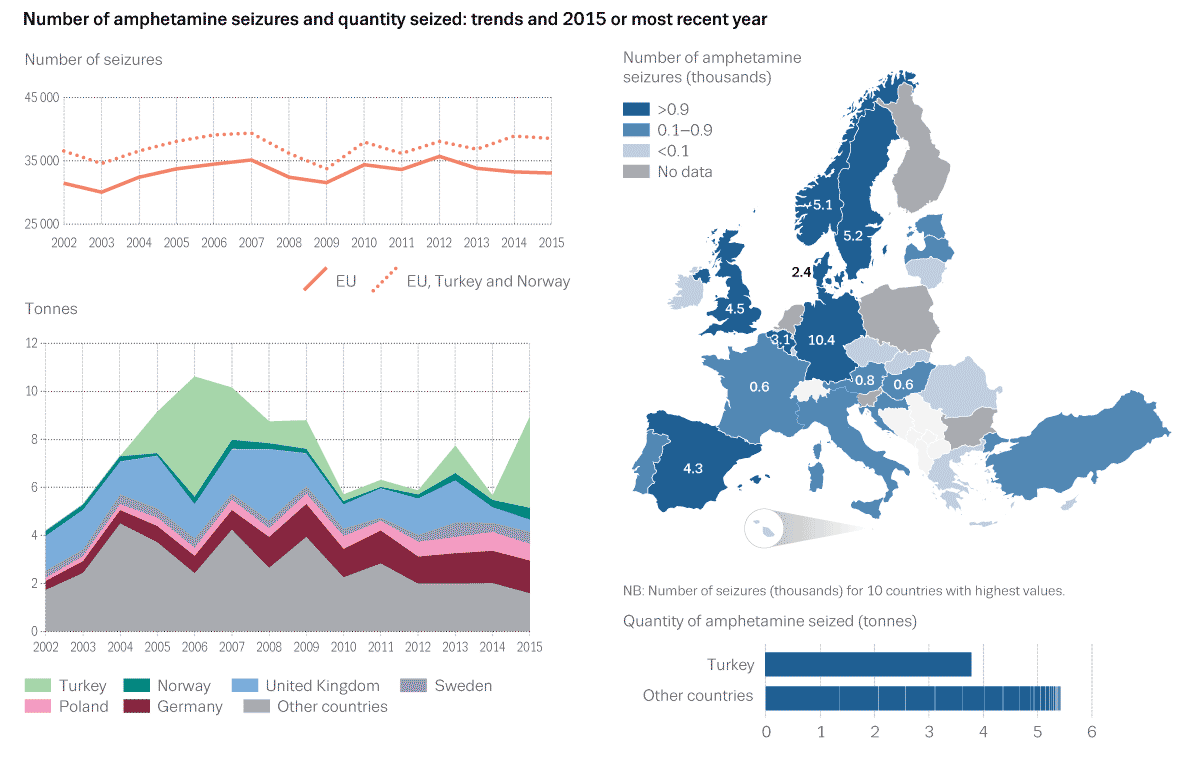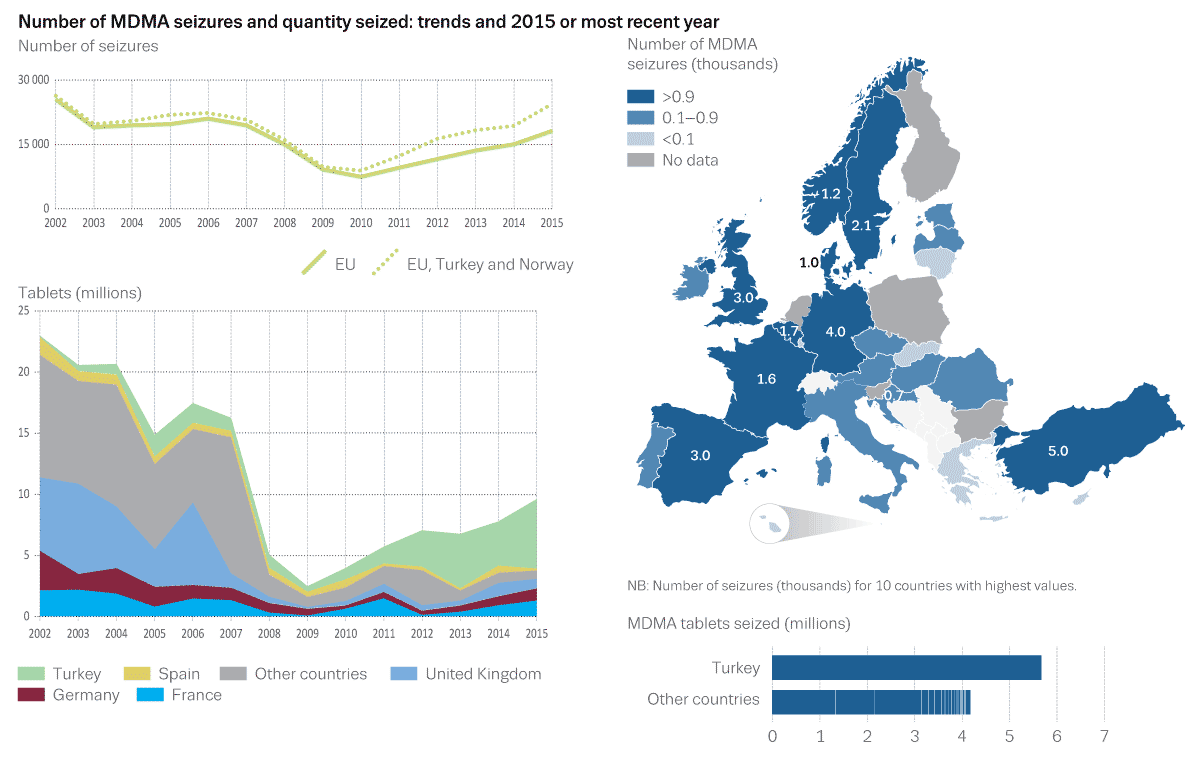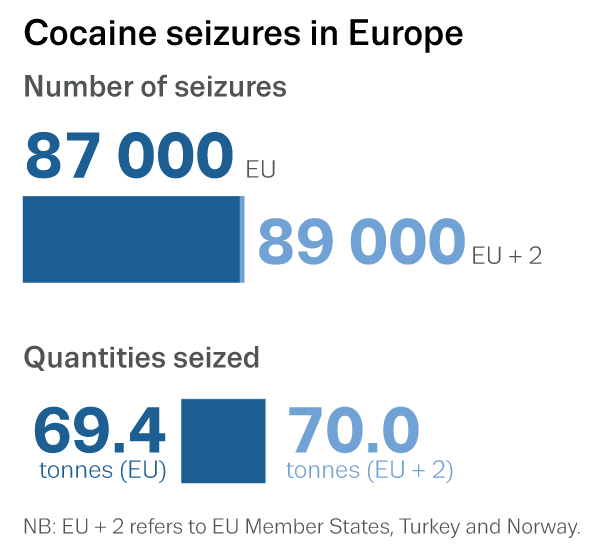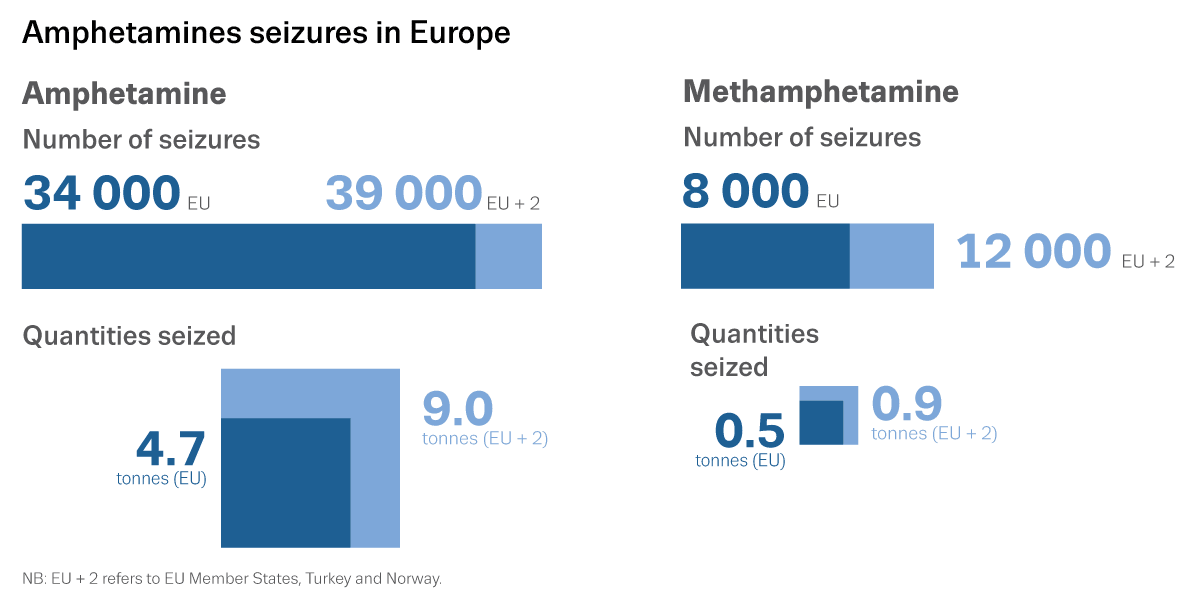Statistical Bulletin 2017 — seizures of drugs
Archived content
Data on drug seizures relate to all seizures made in each country during the year by all law enforcement agencies (police, customs, national guard, etc.). Caution is required in relation to double-counting that might occur within a country — although it is usually avoided — between various law enforcement agencies.
Data tables
Use the menu below to find data sets of interest.
Graphics
Click on a graphic from the thumbnails below
Methods and definitions used
Data on drug seizures relate to all seizures made in each country during the year by all law enforcement agencies (police, customs, National Guard, etc.). Caution is required in relation to double-counting that might occur within a country — although it is usually avoided — between various law enforcement agencies.
Data on seizures is reported by almost all countries both in terms of the number of seizures and the quantity seized. The Netherlands and Poland report only the quantity seized. Attention has been concentrated on the main drugs, though since 2012 countries have been asked to specify and report on any drug for which seizures data is available.
Seized quantities of cannabis, heroin, cocaine and amphetamine are provided in kilograms, of LSD in doses, and of ecstasy in tablets. Quantities seized may fluctuate from one year to another, due to a small number of large seizures. For this reason, the numbers of seizures are usually considered as a better indicator of trends. In all countries, they include a major proportion of small seizures from the retail level of the market. All trend data, though, are subject to extraneous influences affecting them, e.g. changes in legislation, changes in police practices, etc.
Almost one million seizures were reported to the EMCDDA, though this is likely to be an underestimate as until recently only seizures for a specific list of drugs was reported, the most consumed illicit drugs, but not all illicit drugs. This is of particular relevance when considering the reporting of seizures within the European Drug report, where percentages are of the drug seizures reported to the EMCDDA.
More recently the EMCDDA has been collecting information on drugs outside of this list, though this remains difficult given the wide range of drugs available, the differing legal status of drugs within countries of the EU, and the non-prescribed use of medicinal drugs.









